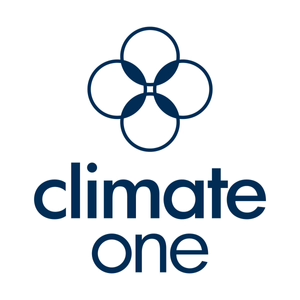
Episode 7: One Fish, Two Fish, Environmental Justice
11/12/19 • 23 min
While in grad school, April Richards discovered that she wanted to study both fish and environmental justice. Her advisor wasn't really sure how to direct her.
A year and a half later, she sat in the ORCA Podcast hot seat explaining just how she's combining those interests as a Research Associate for the organization.
Using both qualitative and quantitative research methods, Richards spent an entire summer investigating the habits of local subsistence fishing populations and testing fish parts for the presence of microcystin—a toxin released from toxic algae blooms. This tendril project sprouted from the overarching One Health research program at ORCA (check out Episode 2).
Now, she is continuing her work with these communities as well as the local health care system in Fort Pierce by conducting physician surveys. If you receive health care in Martin, Okechobee, Indian River, and/or St. Lucie County, Florida, you can join our citizen science efforts to collect the same qualitative data that was so insightful to ORCA's original research championed by Richards. To learn more, email [email protected]
While in grad school, April Richards discovered that she wanted to study both fish and environmental justice. Her advisor wasn't really sure how to direct her.
A year and a half later, she sat in the ORCA Podcast hot seat explaining just how she's combining those interests as a Research Associate for the organization.
Using both qualitative and quantitative research methods, Richards spent an entire summer investigating the habits of local subsistence fishing populations and testing fish parts for the presence of microcystin—a toxin released from toxic algae blooms. This tendril project sprouted from the overarching One Health research program at ORCA (check out Episode 2).
Now, she is continuing her work with these communities as well as the local health care system in Fort Pierce by conducting physician surveys. If you receive health care in Martin, Okechobee, Indian River, and/or St. Lucie County, Florida, you can join our citizen science efforts to collect the same qualitative data that was so insightful to ORCA's original research championed by Richards. To learn more, email [email protected]
Previous Episode

Episode 6: Misperceptions of Chemistry
We’ve all heard the word, "chemical," be used to insinuate toxicity, danger, or harm. But what, exactly, is a chemical? And what does chemistry have to do with helping the Ocean Research and Conservation Association carry out its environmental work? Before we go throwing around the word, “chemicals,” in a negative way, we wanted to clarify some of chemistry’s most common misperceptions; so, we brought in an expert-in-the-making: Yale University chemistry major, Jaeger Johnson.
For the second year in a row, ORCA was pleased to have Johnson as a summer intern. Host, Aurora Aparicio, sat him down between lab experiments to get to the heart of how scientists think about chemicals and perhaps how we can start thinking about them, too. Their conversation unveils what it takes for an ordinary chemical to be considered a harmful pollutant and to whom.
In this episode, you’ll learn about elements, chemicals, chemical reactions, and the distinctions between different branches of chemistry and how they augment environmental science. You may also be surprised to hear about some familiar chemicals your family already knows, loves, and uses daily.
As always, thanks for listening and be sure to check out how you can help save the environment at www.teamorca.org
Next Episode

Episode 9: Investigating Our Produce & The Process of Experiementation
Rose Blanchard, a senior at Berry College and 2019 summer intern at ORCA, expressed her passion for OneHealth research through a series of lab experiments this summer. Specifically, she designed an experiment to test for microcystin (a toxin produced by some algae) in everyday fruits and vegetables found at the grocery store. In her process of designing the experiment, the 21-year old biology student was met with several obstacles that taught her valuable lessons about how to test hypotheses, construct methods, and what to expect when you're experimenting.
Press play to hear about Blanchard's scientific method and mishaps, as well as whether or not she was able to resolve them.
If you like this episode you’ll love
Episode Comments
Generate a badge
Get a badge for your website that links back to this episode
<a href="https://goodpods.com/podcasts/orca-podcast-410429/episode-7-one-fish-two-fish-environmental-justice-57267265"> <img src="https://storage.googleapis.com/goodpods-images-bucket/badges/generic-badge-1.svg" alt="listen to episode 7: one fish, two fish, environmental justice on goodpods" style="width: 225px" /> </a>
Copy




